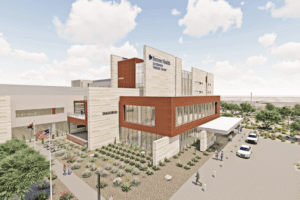Breast cancer is the most commonly diagnosed cancer in Latinas, but patients often have limited access to resources to help them cope psychologically.
A research study to evaluate the impact of low cost telephone-delivered counseling on quality of life for Latinas with breast cancer and their supporters is being led by Terry A. Badger, PhD, RN, PMHCNS-BC, FAAN, professor and division director of community and systems health science at the University of Arizona College of Nursing and a member of the UA Cancer Center.
Dr. Badger received funding from the American Cancer Society to conduct the Telephone Health Education and Support Project, which is open nationwide to eligible participants and their supporters, who can include spouses, family members or friends.
“Latinas are a growing and particularly vulnerable population with regard to breast cancer, because they tend to be diagnosed at later stages, to be sicker, and, in particular, have fewer easily accessible resources to deal with their psychological distress,” said Dr. Badger. “Untreated distress is associated with poorer health outcomes, so we designed a study to offer support for this distress that could easily be accessed by these patients.”
The study is comparing two groups, each composed of women and their designated supporters. One group of women and their supporters receives a counseling-focused intervention and the other receives an educationally-focused intervention. The interventions are delivered by specially trained professionals in a 30 to 40 minute telephone call once a week for eight weeks.
“In our research, we have found over and over that the supporter has as much if not more psychological distress than the survivor themselves,” said Dr. Badger. “This makes it critical that we provide services to both the Latina and her supporter.”
Christina Castro, a 58-year-old mother of three from Tucson, decided to participate in the study with her husband after she was diagnosed with breast cancer seven months ago.
“The call once a week was something to look forward to,” said Castro. “It was really easy to talk to someone who wasn’t a family member, but someone who would just listen to me. Being at home really helped make it comfortable, and it was set up at a time that was convenient for us. The calls were both comforting and empowering. I would definitely encourage others to do it.”
“We have participants from all over, including Yuma, New Mexico, Colorado and Nevada,” said Dr. Badger. “Research team members call participants in the evenings or on weekends, whenever it’s convenient for the patient and their partner. We can deliver this intervention anywhere as long as participants have access to a telephone.”
To learn more, call 1-866-218-6641 or email Maria Figueroa at mcf2@email.arizona.edu or Dr. Badger at tbadger@email.arizona.edu.




